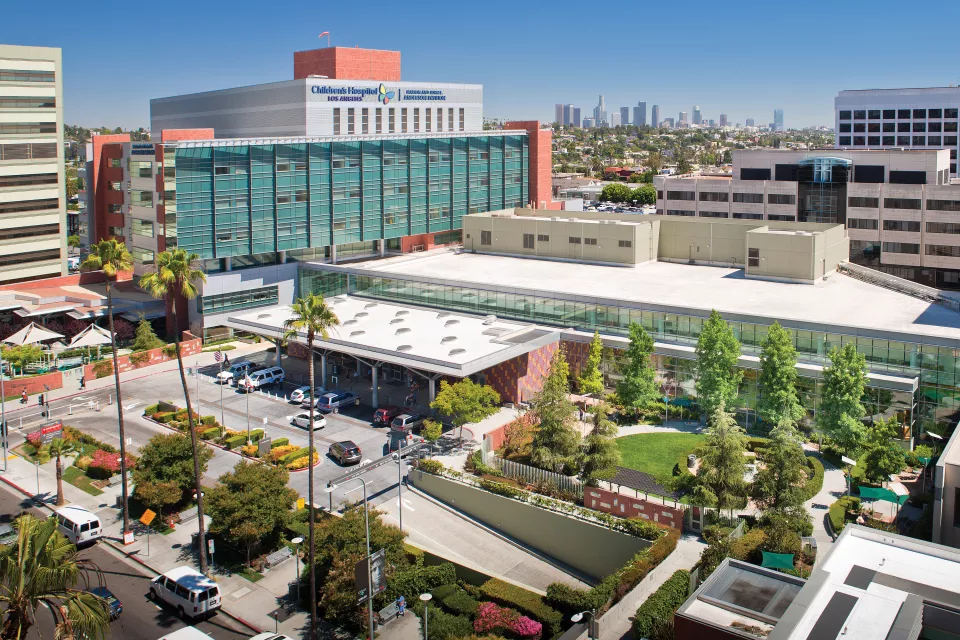About the Fellowship
The Fellowship in Pediatric Surgery Research lasts from one to three years, and is open to general surgery residents who have completed the second or third year of residency. It’s designed for those who wish to focus exclusively on basic science or research projects. Fellows in this program generally do not take on any clinical responsibilities, although they are expected to provide night call coverage on occasion.
How to Apply
Send your CV and letters of recommendation to Christopher Gayer, MD, via email at cgayer@chla.usc.edu.
Program Fast Facts
ACGME Accredited: No
Fellows per year: 1-4
Duration: 2 - 3 years
Postgraduate Training Required: Applicant must have completed at least 2 years of general surgery clinical residency and be enrolled in a general surgery residency program.
U.S. Citizenship Required: Yes
Salary (2024-2025):
Post Graduate Year 3: $80,808.00 minimum
Post Graduate Year 4: $84,073.60 minimum
Post Graduate Year 5: $87,401.60 minimum
Post Graduate Year 6: $90,667.20 minimum
Post Graduate Year 7: $93,828.80 minimum
Post Graduate Year 8: $96,948.80 minimum
Benefits Include: Health and dental insurance, 14 days paid vacation, 6 protected sick days, yearly educational stipend, monthly meal stipend, and 401(k) matching up to 3%.
Program Descriptions
PI: Lorraine Kelley-Quon
Research Description
The Health Outcomes and Policy Effects (HOPE) Lab at CHLA aims to create knowledge that directly translates to policy level interventions to improve pediatric health. We work with several large administrative and clinical datasets (Office of Statewide Health and Planning Development (OSHPD), Pediatric Health Information System (PHIS), Kids’ Inpatient Database (KID), and the Pediatric National Surgical Quality Improvement Program (NSQIP Peds)) putting our group in the unique position to answer meaningful clinical questions using diverse data resources. We also partner with the Western Pediatric Surgical Research Consortium (WPSRC) to conduct multi-institutional research among 9 free standing children’s hospitals in the Western United States. In addition, we are running several clinical projects at CHLA exploring opioid use in children and adolescents after surgery and often collaborate with the Institute for Addiction Science at USC. We encourage fellows to commit two years to this research program in order to maximize productivity. Clinical opportunities include conference attendance as well as call on the pediatric surgical service.
PI: Christopher Gayer
Research Description
Our lab focuses on a bile acid receptor called farnesoid X receptor (FXR), and the role it plays in intestinal inflammatory injury and recovery. FXR is a key bile acid receptor that influences the intestinal epithelial barrier and the intestinal innate immune system. We have shown that in acute, inflammatory injury, FXR knock-out animals are protected from barrier dysfunction. These animals have improved tight junctional protein organization and decreased proinflammatory cytokine production. We are exploring the mechanism through which FXR affects intestinal tight junctions and the inflammatory milieu through the innate immune system. In our lab we utilize a number of techniques to explore these questions, including animal models, organ-specific knock-out animals, enteroid culture, and bone marrow-derived macrophage culture. In vivo models include an LPS-injection model of acute injury, cecal ligation and puncture, inflammatory bowel disease models, and models of necrotizing enterocolitis. Research fellows do not need experience in a basic science lab setting to apply. You will learn not only science, but also hypothesis generation, presentation skills, and writing skills (abstracts and manuscripts). You will also have the opportunity to be involved in clinical projects if desired. The research fellows will present any accepted abstracts. We encourage a two-year commitment to the research program to maximize productivity.
